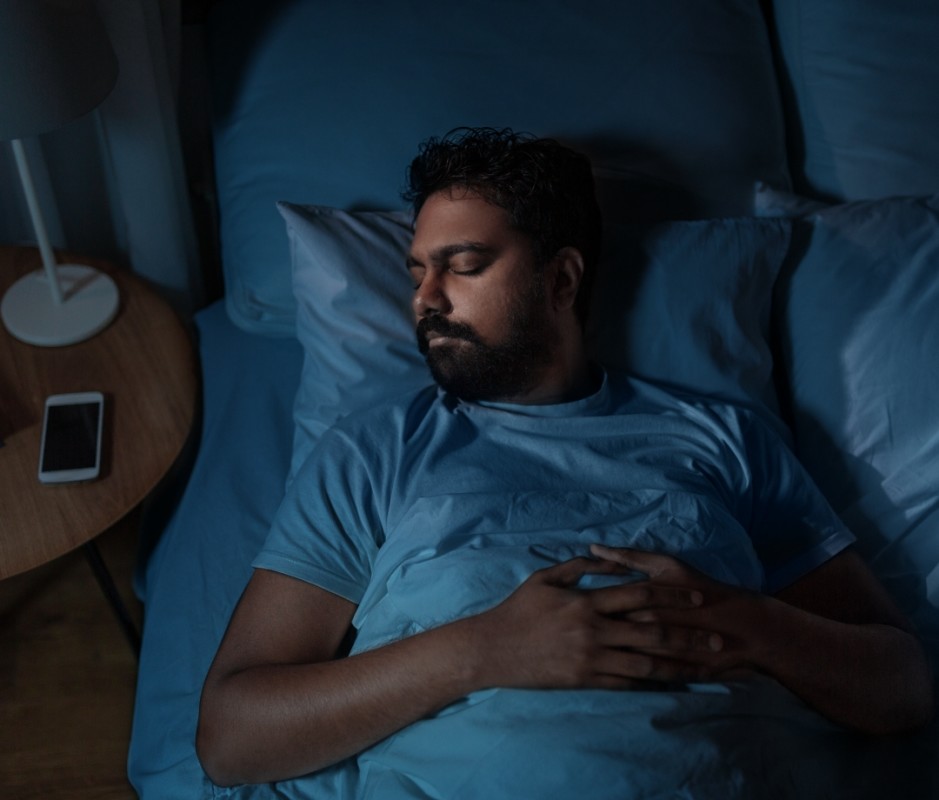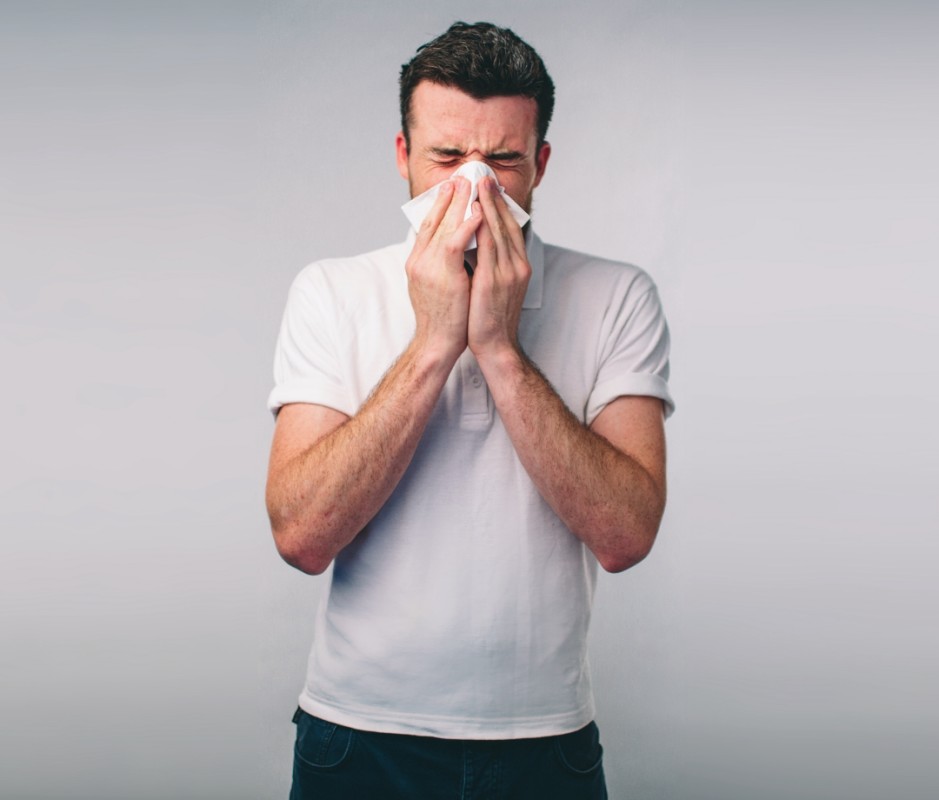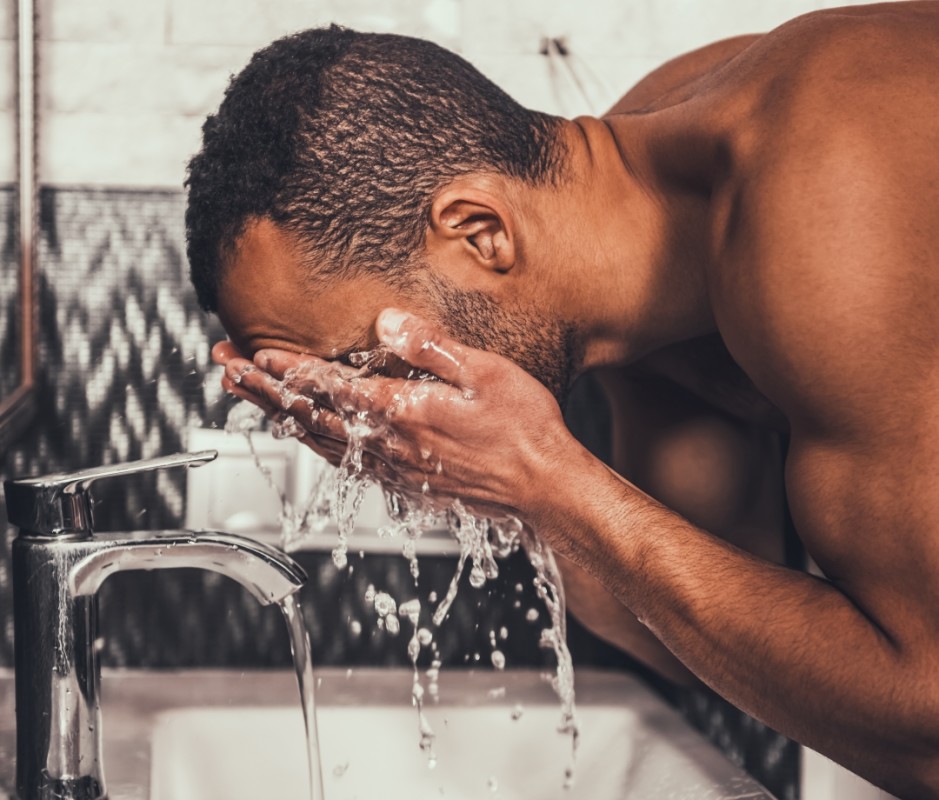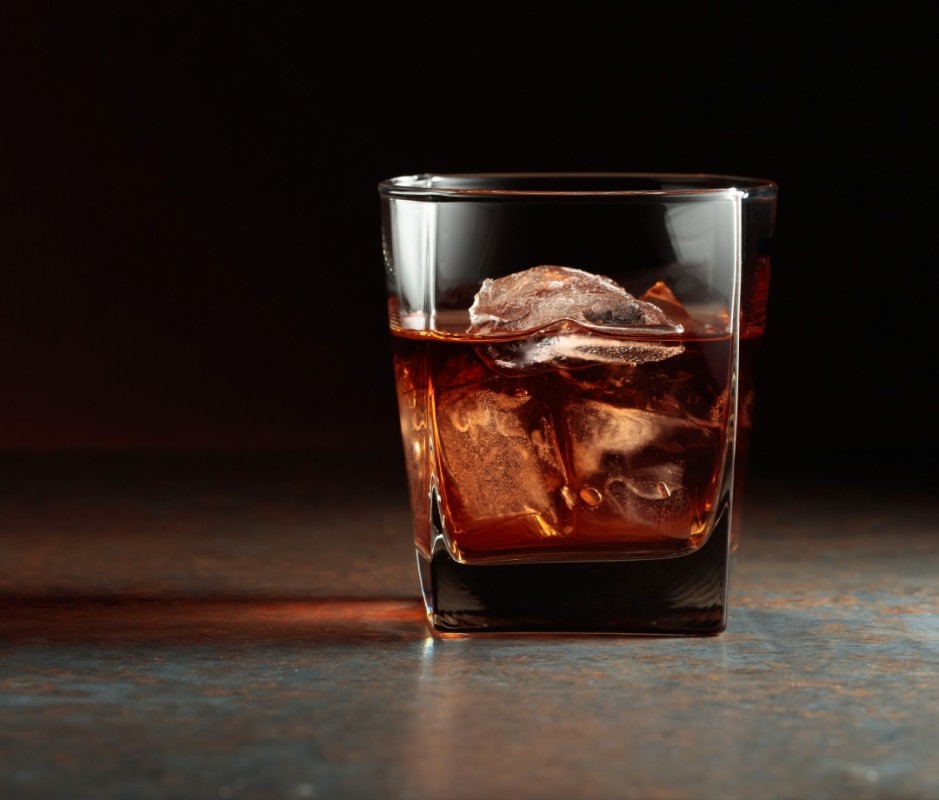We Love Whiskey, Beer, and Tequila, Too. But Here's How a 30-Day Break Can Boost Your Health
Dry January has become increasingly popular in recent years, but we’ll be the first ones to say it: There’s nothing quite like sipping on some good whiskey after a long day or enjoying a glass of red to enhance the deliciousness of dinner.
Even so, that evening beverage—and the subsequent false feeling that everything’s suddenly a little easier to handle—can easily snowball into multiple drinks or drinking every day of the week. Even if you stay under two drinks per night (that’s considered “moderate” drinking for men), the effects of alcohol can add up night after night.
“Alcohol is a neurocognitive depressant, meaning it depresses the central nervous system. Over time, it can negatively impact nearly every system in the body,” says Abe Malkin, M.D., family medicine physician and medical advisor at Monument, a digital alcohol treatment platform.
Fortunately, the human body has an amazing ability to heal.
“The benefits of sobriety can become apparent in just a few weeks,” Malkin says. “Like during a sobriety challenge.”
Taking a 30-day break from alcohol, such as during Dry January (or any time of year), can create a host of benefits, including better sleep, a more stable mood, less brain fog, and an improved immune response.
Perhaps most notably, studies show it can improve your relationship with alcohol if and when you decide to imbibe again. Research from 2020 even shows staying off the sauce for 30 days can actually make you feel more satisfied with life and more motivated and confident in your own abilities.
If you’re toying with the idea of going booze-free for a bit, it’s smart to commit to a challenge that has defined rules and expectations. A 2017 study in the European Journal of Public Health found that people who committed to Dry January were more successful at staying sober for the 30 days and had reduced problematic drinking six months later compared to people who set a more general goal to drink less.
“Popular sobriety challenges like Dry January provide an extra level of peer accountability and help normalize alcohol-free living as a proud choice,” Malkin adds.
And it doesn’t mean you have to give up booze forever: Dry January is a great way to develop a more mindful relationship with the joy juice moving forward.
When tallied up, the benefits of abstaining from alcohol for 30 days make a compelling case for giving it a try. Here are all the upsides you could see by taking a break from booze during Dry January (or anytime this year).
Related: 15 HIIT Workouts to Get You Shredded Fast
Dry January: 10 Benefits of Taking a 30-Day Break From Alcohol
1. Better Sleep

We all know a good night’s sleep is crucial for better performance at work, more gains at the gym, and a better headspace overall. But alcohol compromises your sleep quality.
“While alcohol can help you fall asleep more quickly, it interferes with REM cycles and prevents deep restful sleep,” Malkin explains. “When people stop drinking they are often pleasantly surprised that they feel much more well rested.”
Research also shows alcohol intensifies breathing-related problems like snoring. If you give up that evening cocktail, your partner may also catch some better shut-eye, too.
Because alcohol does help you fall asleep faster, you might have trouble drifting off quickly once you go alcohol-free. For help with that, try these six exercises to help you fall asleep faster at night.
2. Less Stress

“People often rely on alcohol to cope with stress and anxiety, so they are surprised to find that their mental health actually improves when they stop drinking because they have fewer emotional swings,” Malkin says.
This goes back to the fact that alcohol depresses your central nervous system. But as a result, it also activates your sympathetic nervous system—that fight or flight rev that keeps your body reactive for when stress or threats come along.
As time goes by without alcohol to keep you in this heightened state, your parasympathetic nervous system (“rest and digest” mode) is able to kick in and put you in a better physiological space to handle stress and surprise without the rollercoaster ride. Research also shows that the part of your brain that regulates anxiety and your desire to drink are the same, so as the former eases up, so does the desire to reach for booze to treat it with.
Keep in mind if you’ve been drinking heavily recently—especially if you’ve been under a lot of stress—early sobriety can sometimes intensify anxiety at first. But “ultimately, abstaining from alcohol can have a very positive impact on mental health, relationships, and mental clarity,” Malkin says.
3. More Energy

Because alcohol depresses your nervous system, it also zaps your energy and makes you feel sluggish the next day, research shows. Waking up without the tiredness of even a subtle hangover—as well as without the disrupted sleep that comes from heavy drinking—means you’ll feel more awake and alert in the morning and have higher natural energy levels throughout the day.
4. Training Gains

Benefits No. 1, 2, and 3 on this list all combine to help you get a way better workout and recovery, which can translate to growing bigger, stronger muscles faster. Plus, a low-key hangover won’t tempt you to skip a workout or sap your motivation in the gym.
In addition, giving up a regular habit of just two drinks a night means you’re skipping roughly 250 to 350 calories, depending on your drink of choice—and even more if you regularly exceed two drinks. For anyone looking to trim fat, this can make a big difference.
5. Lower Sickness Levels

A major but lesser-known upside to doing Dry January is the overall improvement you’ll get in your immune system, Malkin points out.
“Unhealthy alcohol use can impair your immune system and ability to recover from illnesses,” he says. “Those abstaining from alcohol may get sick less often than when they were drinking, and heal from illness more quickly.”
This is great news considering cases of the flu, RSV, and COVID-19 all skyrocket this time of year—but a strong immune system is a crucial asset any time of year.
6. More Money

“When giving up alcohol or cutting back significantly, [many people] find they have much more financial freedom,” Malkin says.
It’s easy to overlook the heavy financial burden of drinking regularly: A January 2020 survey by The Harris Poll reported that millennials spend about $300 per month on alcohol, or $56 per outing—and that’s not even including the added inflation of 2022.
Not only will you save that money for the month of January, but when you consider that the Dry January challenge helps people drink less in the months afterward, you’re looking at a lot less money flowing into your glass all year long.
7. Healthier Skin

Your skin health is heavily dependent on hydration. And guess what? Alcohol dehydrates your body, including your skin. Going without allows your cells to better retain water and makes it easier for your body to flush out old, dead cells. That means abstaining from alcohol can give you clearer and more youthful-looking skin.
8. Better Self-Confidence and Self-Control

A 2020 study out of the U.K. found that, compared to the everyday person, people who participated in Dry January had higher levels of “general self-efficacy”—a complicated scientific marker that essentially refers to your belief in yourself, your motivation, and your self-control.
That’s all to say: Forgoing alcohol for 30 days can help you foster the confidence and self-discipline you need to reach your goals.
This benefit comes in part from holding strong against the psychological and emotional crutch of alcohol. If you can stay on course, that strength doesn’t just help you avoid having a drink—it translates to every area of your life, from your fitness goals to your career goals and financial goals as well.
You may find that you’re better able to commit to other healthy choices after completing a 30-day alcohol-free challenge.
9. Increased Happiness

That same 2020 study also found that people who participated in Dry January had higher levels of well-being compared to the everyday person. This is in part thanks to the reduced mood swings, decreased anxiety, and better sleep that come from abstaining.
But Malkin also points out that when you’re drinking a lot, alcohol becomes the source you go to in order to feel better.
“When people give up alcohol or cut back significantly, they often discover new enjoyment in other parts of their life,” he explains. “They often develop new passions, feel more energized, and show up more fully in their personal and professional lives.”
10. Healthier Relationship With Alcohol

Research shows participating in Dry January does indeed help people develop a healthier drinking habit in the long run. Plus, they feel more equipped to say no to a drink when they want to, even after the challenge is over.
It’s kind of like how when you overhaul your nutrition, you enjoy Cheetos or pizza more. That’s because you only eat them occasionally, and they don’t have that habitual, emotional hold over you.
Proving to yourself that you can take a 30-day break from alcohol helps break the cycle of mindlessly drinking, Malkin says.
“It also provides an opportunity to reflect on the role alcohol plays in your life, and helps alleviate the mental reliance on drinking as a social crutch.”
Simply put, taking a 30-day break from alcohol can help you make more mindful choices moving forward—even if that choice is to enjoy your beloved glass of whiskey after a long day come February.
Related: Dry January Is No Problem if You Stick to These Delicious Nonalcoholic Beers

